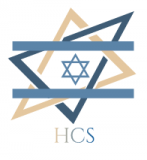Shoftim starts off with a very fair and just warning: don’t try to move the boundary markers of your land! A problem we still have in the courts today.
Then we move on to perjury – bearing false witness, or as the Torah calls it, a witness of malice. The penalty in the Torah for lying in front of a judge is very severe. If you say, falsely, that someone took out another person’s eye – you lose your own eye! If you say someone knocked out another person’s tooth – you lose your own tooth! That’s how seriously the ancient Hebrews took perjury. After all, it’s one of the Ten Commandments!
To lessen the chance of perjury, the Torah requires that there be two and even three witnesses in a case for it to be a case.
The commandments regarding war seem harsh by today’s standards. Although not so very harsh – after all, the Russians are killing civilians and children in Ukraine.
The commandments are thus:
First of all, certain Israelites are exempted from fighting in the army: new builders, new planters and newlyweds. Also, men who are afraid to fight should stay home so they don’t “melt the heart” of their brothers.
Then, if the army show up at the gates of a city and the people open their gates to you, you let the people in the town live as your slaves. If they resist, you wipe out their menfolk and keep the women and children as slaves, and their belongings as loot.
Interestingly, the Israelites are specifically told not to cut down any fruit bearing trees. That’s pretty practical since they plan to move in to the town themselves and will want something to eat. Only non-food bearing trees can be cut down for siegeworks.
If you think all that sounds harsh, here’s what was to be done with the Hittite, the Amorite, the Canaanite, the Perizzite, the Hivvite and the Yevusite: kill them all so you won’t be exposed to their gods!
Food for Thought:
Why do you think newlyweds are excluded from being in the army?

There had to be 2 or 3 witnesses for there to be a case.
